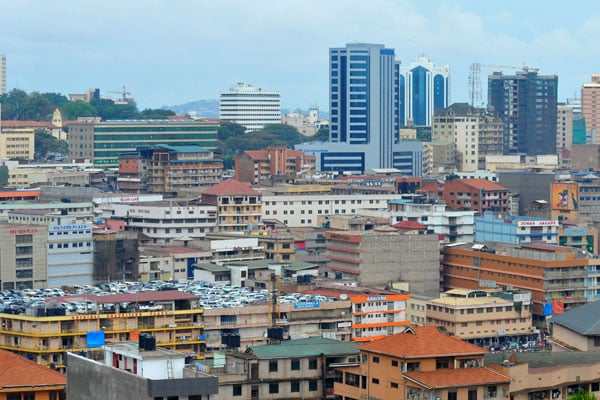Prime
Poor air quality in Kampala is a time bomb - health experts warn

A view of downtown Kampala. Photo/FILE
What you need to know:
Dr Daniel Okello, the director of public health and environment at Kampala Capital City Authority (KCCA) revealed that pollution levels in the city are between five and seven times higher than the World Health Organization’s recommended safe standards
Experts have expressed worries over the level at which air quality in Kampala city continues to drop, something that they say exposes those who work or live in the city to deadly health conditions.
Dr Daniel Okello, the director of public health and environment at Kampala Capital City Authority (KCCA) revealed that pollution levels in the city are between five and seven times higher than the World Health Organization’s recommended safe standards.
Kampala is home to over two million city dwellers and is ranked among the world's most polluted cities, according to the 2021 Global Air Quality Report.
Addressing guests during the launch of air quality awareness week and commissioning of the air pollution source project held at City Hall yesterday Dr Okello said continuous exposure to contaminated air may narrow or block blood vessels and could lead to a heart attack, chest pain, stroke, or other respiratory diseases such as asthma, chronic bronchitis, lung cancer, and pneumonia.
He noted that air pollution in Kampala is mostly caused by dust from unpaved roads, fumes from cars, and open burning of waste.
According to statistics from the Uganda National Bureau of Statistics, close to 50,000 vehicles make their way to the city every day.
The Uganda National Environment Management Authority (NEMA), estimates that about 140,000 liters of fuel are burnt by idling cars every day worth 500 Million Uganda Shillings
Kampala is also ranked number 5 among the top ten most air-polluted cities in Africa, with an average annual pollution of 26.1.
Dr Ivan Kimuli from the Makerere University Lungs Institute said that Kampala's air quality remains poor due to increasing air pollution.
“Kampala City is facing significant air pollution challenges due to various anthropogenic activities such as transport, industries, and domestic energy use. However, there is limited information on the magnitude and sources of all air pollution in the city, hindering effective air management, Dr Kimuli said.
He said the Makerere University Lung Institute had partnered with KCCA to pilot a project on the use of urban air pollutant emissions inventory and chemical speciation for source apportionment in Kampala to scale up air quality management in the city.
Ms Kisaka Dorothy, KCCA’s executive director said the authority encouraged those who pollute the environment to take action. She also encouraged them to incorporate knowledge of air quality management into their daily work.




